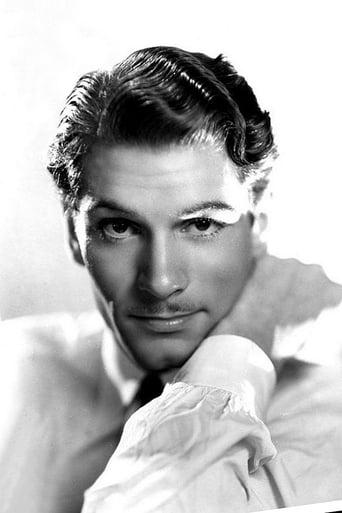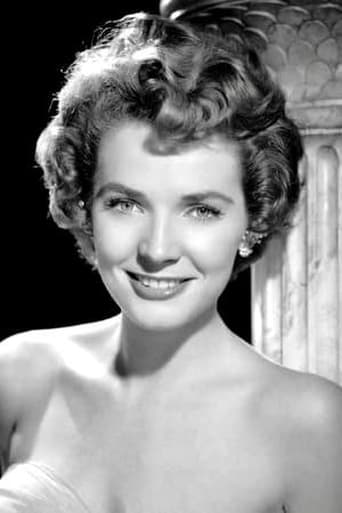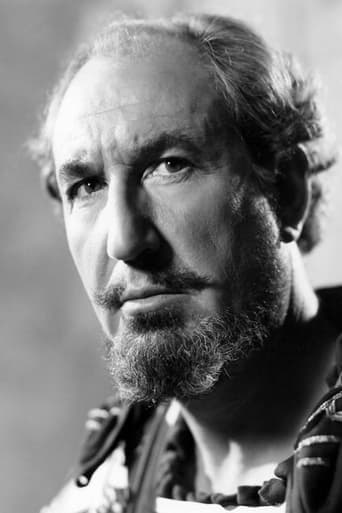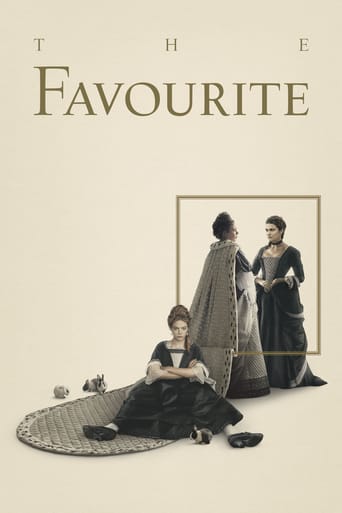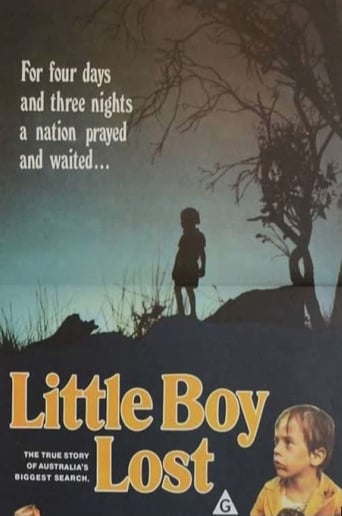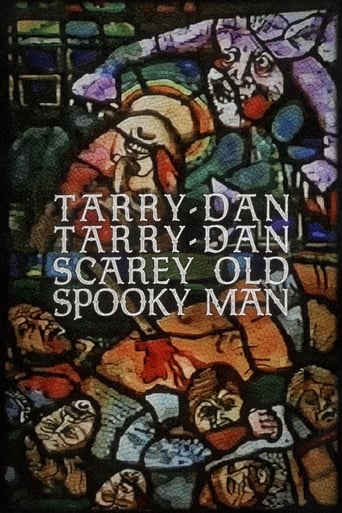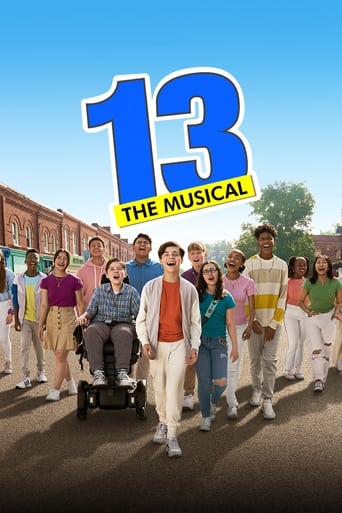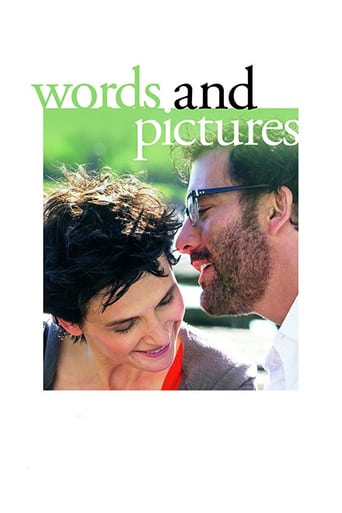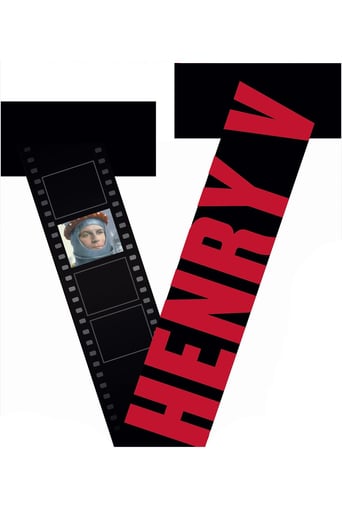
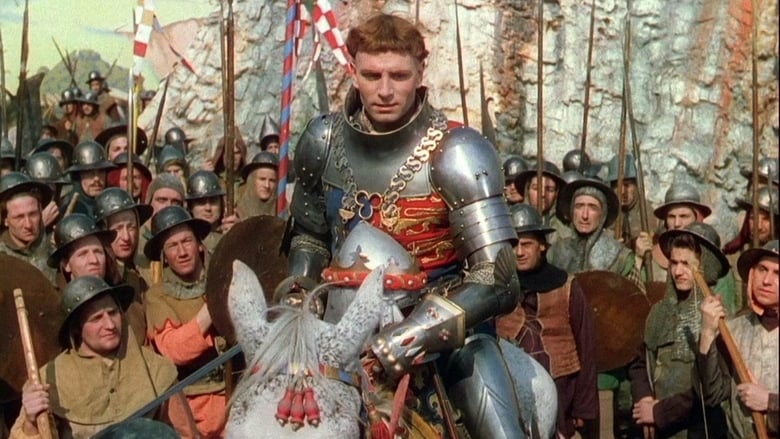
Henry V (1944)
In the midst of the Hundred Years' War, the young King Henry V of England embarks on the conquest of France in 1415.
Watch Trailer
Cast
Similar titles
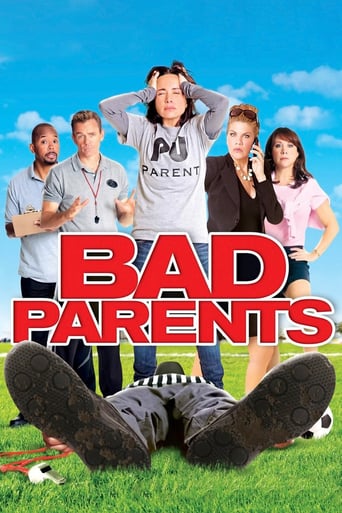
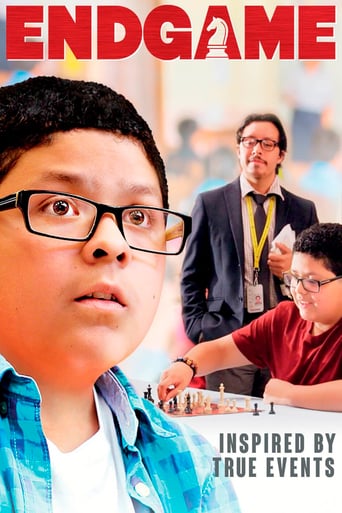
Reviews
Slow pace in the most part of the movie.
I don't have all the words right now but this film is a work of art.
Great Film overall
A lot of fun.
This was commissioned by Churchill to help rally the Allied troops for the invasion or liberation of Nazi-occupied France in 1944. After all, Shakespeare's play deals with the Plantagenet king's success in sailing for France and defeating their forces at Azincourt against all the odds.It's odd to watch this, as it's a history lesson in triplicate. First there's the fact it's a sort of propaganda piece. Then it's of the Shakespearian era, as the stunning opening shot in technicolour is a sweeping view up the Thames of Elizabethan London, from the Tower of London to the Globe Theatre. The conceit is that the play is being staged during the time it was written, and Olivier et al are Shaky's contemporaries. But of course, the events of the play took place some 180 years earlier, in 1415.I admit I could only follow this with my No Fear Shakespeare guide providing a translation! But I had to turn several pages at a time to keep up, as large chunks are omitted from this version. Usually anything that hints of discord in the British camp, this being a propaganda piece of sorts. So the barons' plot to topple the king on the eve of his departure for France is omitted - though the barons do appear, just without Henry V's Blofeldesque pay off. Also, Henry's talk of ensuring Scotland is subdued as they always used war with France to invade through the backdoor. Not wise talk in 1944 when you want the whole of the UK to rally behind you! Also, some historical references: that the King is descended from the French himself, or his remorse expressed over his father Henry IV's actions. (Henry IV aka Richard Bollingbrook was a baron who overthrew Richard II, arguably the last medieval king, and had him starved to death in the tower, casting doubt on Henry V's legitimacy, which he helped assuage by having Richard disinterred and reburried in Westminster Abbey, the proper place for kings.) They also omit Henry's 'let us in peaceably or I can't be help responsible for my soldiers raping your women' speech to Harfleur, their first port of call on arriving in France.Anyway, just shy of the half hour mark the play opens up away from the Globe and becomes a real film, albeit with cardboard backdrops etc, and Olivier looks more like the real king.The best bit is the eve of battle. In the night, the two camps face opposite each other, readying for the next day. The atmosphere as the king walks among his people by night, eavesdropping on their fears and prayers, is wonderful (look out for a very young George Cole - St Trinian's, Minder - as a young lad of the Skins age group!) and quite affecting.That said, the battle itself is a letdown in a way. Oh, it's a sunny English summer's day but the real Agincourt took place in October in northern France and was a nasty, bloody, claustrophobic affair. It had rained and the French cavalry charged, getting massacred by the English longbows (nasty, effective weapons, not the Robin Hood bows and arrows depicted here). They fell in the mud and were unable to rouse thanks to the heavy armour, they were sitting ducks. The reason only around 8,000 English, worn out by their travels and dysentry, could defeat 30,000 French (see Wiki for details) was because the French were rubbish and lambs to the slaughter.This is glossed over a bit in the film, which seems to be a jolly canter about in the English Kent countryside! Almost like a boy scout's war game activity! There's also a fabricated section (not in the play I believe) when Henry personally intervenes to avenge a death, in modern Hollywood 'I'm mad as hell' style. Excised, understandably, is the 'war crime' in which he executes the French prisoners when the enemy begins to rally.All in all a highly enjoyable movie in glorious technicolour, but I will see Branagh's version, to balance it out. And also Luc Brssson's Joan of Arc, as let us not forget that Henry V's achievements were wiped out within only 20 years, so it wasn't an enduring victory, unlike those of, say, Alfred the Great. Or Churchill, of course.
I have never really considered "Henry V" to be one of Shakespeare's greatest plays. It lacks the philosophical depth and emotional power of the great tragedies or even of some of the other history plays, such as "Richard III". It is a play which mythologises an English king whose main achievement was to start an unnecessary war with France. As Shakespeare knew well, Agincourt was a great victory in the short term but a futile one in the long term. Henry's early death meant that his great ambition of uniting the French and English crowns was never realised; the United Kingdom of England and France remains one of the great might-have-beens of world history. Moreover, modern audiences might have another problem with this play. By modern standards (which were not necessarily the standards of either Shakespeare's day or of Henry's) the English were the aggressors in the Hundred Years War; even by mediaeval standards, Henry's claim to the French throne was by no means as clear-cut as Shakespeare imagined.Despite these difficulties, "Henry V" has been the subject of two of the greatest cinematic Shakespeare adaptations, this one and Kenneth Branagh's version from 1989. One reason is that it contains some of Shakespeare's most magnificent poetry and some of his greatest set-piece speeches, mostly put into the mouth of Henry himself. It is therefore a very tempting role for Shakespearean actors, especially those who can speak blank verse as naturally as Olivier or Branagh.The two films are very different in style. Branagh's naturalistic film emphasises the bloodshed and squalor of war; contrary to what is sometimes thought, mediaeval warfare was not necessarily more chivalrous, or even less bloody, than the modern version. (The bloodiest day in British military history, when some 26,000 were killed, was 29th March 1461, the date of the Battle of Towton during the Wars of the Roses). Olivier's film is highly stylised rather than naturalistic. The scenes set in England are presented as a re-enactment of how the play might have been performed at the Globe theatre during Shakespeare's own lifetime. The French scenes were shot against sets based upon paintings from the early fifteenth century, especially the work of the Limbourg brothers. The battle scenes are more realistic, but even these play down the elements of blood and cruelty.Olivier's film- the first which he directed- was commissioned by the British Government as a patriotic morale-booster during the Second World War. The decision to portray war as something glorious rather than bloody was therefore a quite deliberate one. A sharp contrast is drawn between the heroic Henry and his French counterparts. Those parts of Shakespeare's play which show Henry in a less favourable light, such as his order to kill the French prisoners, are omitted, apparently on the instructions of Churchill, who did not want the film's patriotic message to be clouded by moral ambiguities. The French King, Charles VI, is portrayed as a senile old fool, and his son the Dauphin Louis as not only an arrogant popinjay but also a sadistic brute who slaughters non-combatants such as the young boys in the English baggage train. Stress is placed on those scenes which show the English, Scottish, Welsh and Irish captains fighting together against a common enemy. (Shakespeare was probably looking ahead to the unification of the English and Scottish crowns under James I and VI, which was to take place a few years after his play was written; it is perhaps no accident that the Scottish captain is called Jamie).Of the two films I would- marginally- prefer Branagh's, which seems more relevant to a modern audience. Yet there is much about the earlier film which is of value even today. Some of the supporting performances are very good, especially from Harcourt Williams as the mad old Charles, Max Adrian as the Dauphin and Leslie Banks as the Chorus (who speaks some of the most poetic speeches not given to Henry). This is one of the few British films of the early forties shot in colour, and the colours are particularly vivid and jewel-like, making the film far more visually spectacular than Branagh's. Above all, this film gives the chance to later generations to see one of Britain's finest classical actors, at the peak of his powers, taking the leading role in a Shakespearean drama. 8/10
Laurence Olivier's HENRY V could very well be the premier Shakespeare film on which to judge all others. Shakespeare's play Henry V is not regarded among his greatest works, yet Olivier's film HENRY V represents the pinnacle of the Bard's translation to the screen.HENRY V works well on film because of the stirring subject matter and Olivier's brilliantly conceived 'play-within-a-play' idea. This concept allows moments of Shakespeare's wonderfully bawdy humor to come through alongside his powerful monologues and stunning language. HENRY V also contains a very fresh, almost Post-Modernist feel to it, with the narrator constantly reminding the viewer that they are watching a play.Olivier's performance as the King stands tall as one of his very best. His Battle Of Agincourt speech is justifiably famous, yet he also delivers many other wonderful pieces of theatrical acting throughout the film. His soliloquy in voice-over as he visits his soldiers is subtle and compelling, equally effective as his inspirational cries preceding the battlefield sequences. Olivier is always convincing, whether as a King leading his men or in his romantic wooing of Princess Katherine.Robert Krasker's fine Technicolour enhances the production, with HENRY V holding up very well in terms of it's visuals and cinematic scale.9/10.
This is the best of any of Shakespeare's works rendered on film. Olivier deftly weaves the play, which begins as a stage production, played at the Globe Theatre with nervous actors, miscues, an audience, food vendors, a rain storm, and all that probably accompanied any Shakespeare play when it was contemporary, into a dramatic film.The play literally turns to "real life", as the actors and locales change before our eyes into the photo-play. All that is technique, but good as it is, the "play's the thing" as Shakepear's work comes to life before our eyes. Great production values. Great story line (thanks to W.S.). Great presentation all-around.This 1944 version is far superior to the mud and gore version produced later in the late 1980's.
